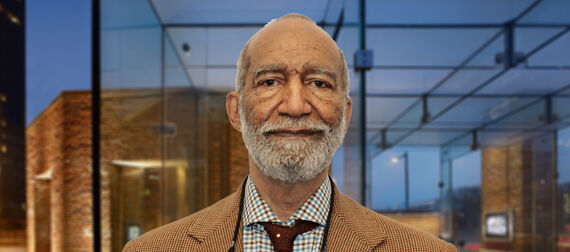With the opening of a Chili’s at 13th and Filbert, just a stone’s throw from the new Olive Garden, it is no longer possible to ignore the fact that the retail landscape of Center City Philadelphia is beginning to resemble a Cherry Hill strip mall. Starbucks continues to open up new locations at a rapid clip. Fox and Hound, an "English" chain pub based in, of all places, Wichita, Kan., has just opened an outpost at 15th and Spruce. The invasion of the suburban chains is happening. The only question is, why? Real estate insiders present two possible reasons for the proliferation of chains.
According to a local zoning attorney, Wall Street creates constant pressure on publicly traded companies like Starbucks to post an ever higher number of stores. With the suburbs filled to the brim with chain stores, the only place to expand is in cities.
Midge McCauley, who leads Downtown Works, a division of the King of Prussia-based real estate company Kravco, says it's more marketing than anything else that has led the chains to discover Center City. "I've been leasing in Philadelphia for close to 20 years. We had to pull teeth to get national chains to Philadelphia." McCauley attributes the lack of interest in Philadelphia to the deterioration of Market, Chestnut and Walnut streets in the years before the Rendell renaissance. After the first chains took the leap to downtown, McCauley says, they were successful enough to lure others. For example, the Tower Records at Broad and Chestnut outsells every location in the country save two in Manhattan.
McCauley insists that the proliferation of chains should be a cause for celebration among city residents. "It's good news that these chains are coming," she says, arguing that fears of a mall-like Center City devoid of independent businesses is unwarranted. Besides, she says, "Starbucks is the best coffee chain out there. Why would people not want the best?"
Todd Carmichael, co-founder of the independent café La Colombe, doesn't agree. In 1982, Carmichael worked at a Starbucks in Seattle. Back then, before the coffeehouse went, in Carmichael's words, "ballistically corporate," it was just a small local chain.
"I think for the chains it does pretty good coffee," he says of his former employer, but independents, he maintains, can do it better and do it uniquely. Carmichael says McCauley's take on coffee is tantamount to saying The Capital Grille, a chain steak house with a restaurant on South Broad Street, "is a great little meat restaurant, so why have any other restaurants?"
Larry Robin, who runs Robin's Books at 13th and Sansom, is even more critical of the chains. Earlier this year, Borders, the Ann Arbor, Mich.-based book giant, moved its flagship Center City store to Broad and Chestnut, right around the corner from Robin's. The veteran bookstore owner says, "The corporate mentality [of the chains] is to take over the market. In the business mentality, it's OEOh, here's a strong independent, that means there's a market and we can get it.'" But in Philadelphia, it appears, thus far at least, that chains and independents can coexist. Robin attributes that to the uniqueness of Philly. "Philadelphia's a weird city. Philadelphia's never been a really good chain city. Maybe it's that whole thing of the city of neighborhoods. It's really hard to get people to [shop outside their neighborhoods]. You can't sell us a lot of new shit."
Not that it's keeping the chains from trying. Center City is clearly in their sites in a way it hasn't been for decades. As Joseph Olin, VP of operations for Quality Dining Inc., which operates the new Chili's, says, "Heretofore Chili's was always viewed as a suburban concept and a suburban restaurant. We had never been truly downtown anywhere in the country. Then a Chili's opened in downtown Chicago about two years ago [and] we started thinking, well, how about Center City Philadelphia?"
While the large plastic chili pepper above the door couldn't make it any clearer that Chili's is a "suburban concept," other suburban chains, like the Olive Garden, have made more of an effort to fit into the urban streetscape. "These are very, very specific sites. They are very much in the downtown areas and they are part of the surroundings there," says Olive Garden spokesperson Steve Coe. "For instance, for our restaurant in [the Manhattan neighborhood of] Chelsea, we worked with the historic preservation society there to make sure what we were doing, from an architectural standpoint and from a visual standpoint, was in line with what their vision was for that area."
If the chains are to have a peaceful coexistence with the city, Olive Garden executives believe they will have to follow this model. But Larry Robin isn't so sure. With the chains, he says, "it's never a peaceful coexistence."
But City Commerce Director James Cuorato isn't worried. While he acknowledges that there are sections of Center City "where the rents are getting to the point where the smaller independents are having difficulty keeping up," he believes "the balance will still be there. Our downtown is large enough and diverse enough where anybody who's looking to operate a retail business will be able to find a space."


